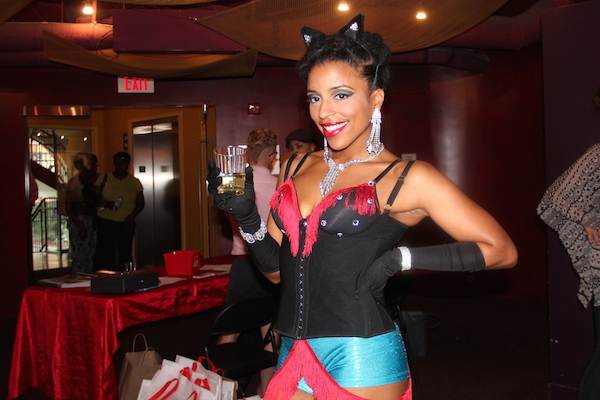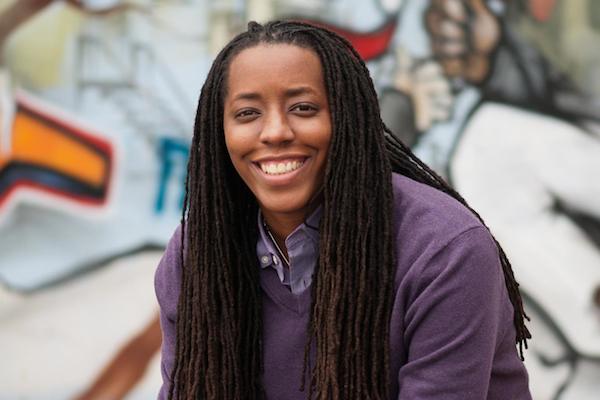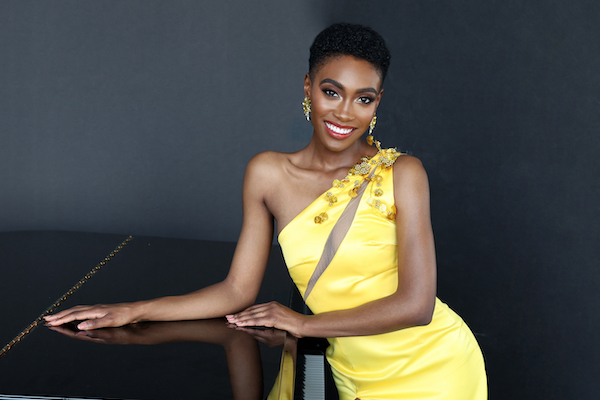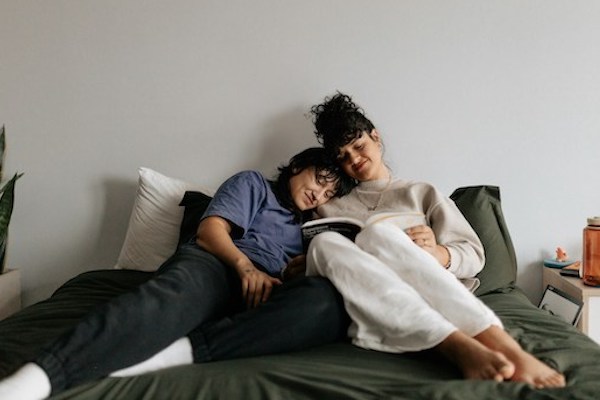
Photos: Chocolate City Burlesque & Cabaret Summer Soulstice
July 30, 2015
Lesbians & Trauma: Dispelling the Myth
July 31, 2015In 2013 Harvard University and the hip-hop archive established the Nasir Jones Hip-Hop Fellowship. The announcement of the fellowship made national and international news headlines. The first cohort has been selected and is set to begin work on their hip-hop related projects during the 2015-2016 academic year. One of the Nas Fellows, Dr. Bettina Love, an outspoken Black queer female scholar will be working on a project titled, Get Free: Hip Hop Civics Education. The project aims to create a multimedia hip-hop civics curriculum for middle to high school students. The curriculum will center on hip-hop music and culture examined within the framework of resistance narratives to promote the traditional principles of civic engagement, while ushering in hip-hop civics education that values the contemporary everyday realities of urban youth who endure the social, economic, physiological, and psychological trauma of coping with the racial injustices of “post-racial” America.
I caught up with Dr. Bettina Love, professor at the University of Georgia, to hear her views on how Black women can be empowered by the the cultural art form of hip-hop, the significance of being named to the first cohort of the Nasir Jones Hip-Hop Fellowship and how hip-hip has provided a blue-print for the youth of today’s civic engagement.
How were you selected for this fellowship? And when do you begin your project at Harvard?
I applied for the fellowship by submitting my CV, a project proposal, and three letters of recommendation. I begin my work at Harvard in January of 2016. I will be there for the duration of the spring semester.
In what ways can/has hip-hop empowered women?
For me, I find empowerment within hip-hop through the framework of Hip-Hop Feminism Ped (HHFP), marshaled by Ruth Nicole Brown. HHFP focuses on representing counter-narratives and highlighting the lived experiences of black and brown folks while asking critical questions about the lives of black girls. Through HHFP, black and brown girls can question, create, discuss, love, heal, dance, imagine, grow, perform, grapple with, and negotiate identity politics. HHFP is also grounded in the production of knowledge located in the examination of one’s self and community.
In the classroom, teaching hip-hop, how do you deal with sexism and heterosexism that the music promotes? Are these conversations you bring to the table as learning tools as well?
Hip-hop and hip-hop ped have an ancestral need and obligation to combine social protest, music, and modes of cultural expression to address systemic racism, classism, and suffering of black and brown folks. However, hip-hop based education coupled with media literacy is a teaching framework used to deconstruct white supremacy, racism, and the criminal (in)justice system. Because hip-hop is rooted within an American ethos, the seductiveness of colonization, heterosexism, patriarchy, capitalism, and rigid ideas of masculinity are wedded to the culture. Students in my class are exposed to the social, political, and economic history of hip-hop that wedded these constructs to the culture. It’s for these reasons I chose to call my class “The History of Hip-Hop and Why It Matters Today”. I also teach another class for educators, entitled “Hip Hop Pedagogy: Possibilities, Challenges & Social Justice”. I believe this education needs to center not only on hip-hop, but also social justice.
In what ways have you seen hip-hop empower today’s youth to challenge the status quo, injustices and/or create social change?
The 2014 Good Kids, Mad Cities campaign by the Dream Defenders, inspired by Compton’s own Kendrick Lamar’s second studio album, Good Kid, M. A. A. D. City, is a great example of hip-hop, social justice, and action. Their campaign depicted Jordan Davis, 17, who was shot unarmed for playing “loud” rap music at a gas station in Jacksonville, Florida. Dream Defenders used the face of Jordan Davis to highlight narratives of resistance that indict a system for the creation of mad cities that penalize good kids. Currently, youth are at the forefront of fighting against “blue on black” brutality and general violence inflicted on black and brown bodies.
What do you think this fellowship, which is dedicated to hip-hop and named after Nas, represents for young people?
I love telling young kids or high school students that I am the Nasir Jones fellow at Harvard University because this allows them to imagine hip-hop beyond with they see in popular culture. I am not a rapper or a DJ, but I am hip-hop. I can study hip-hop. I can create curriculum centering hip-hop. The fellowship lets youth see that you can be both hip-hop and intellectual. The fellowship, like hip-hop ped, recognizes and affirms, that the traditions, customs, and sensibilities of hip-hop culture are both culturally and academically brilliant.
Something about being a black queer female juxtaposed with hip-hop, makes this fellowship seem even more noteworthy/ groundbreaking or ironic. What are your thoughts on this intersection?
To be a black queer woman who is unapologetic about her queerness and be named the Nasir Jones fellow is major. I think it illustrates how far hip-hop, hip-hop studies, and the field of education has come and the possibilities of the work that is yet to be done. This is the first cohort of Jones Fellows, so to start out the gate with two black women, one queer, is such an honor. I am humbled by this opportunity to represent.
Sheena C. Howard is an author, educator and producer out of Philadelphia, PA. Follow her on Twitter at @drsheenahoward.





